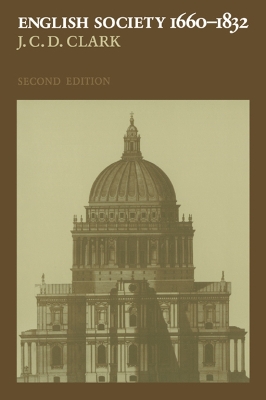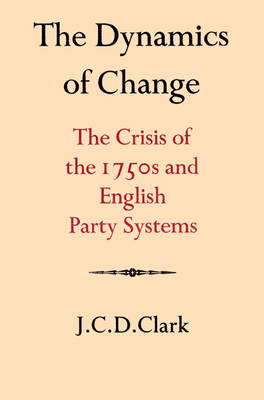Cambridge Studies in the History and Theory of Politics
3 total works
This book is the first survey of the period between the Glorious Revolution and the Reform Bill to attempt to outline some general explanations of England as an ancien-regime state, dominated politically, culturally and ideologically by the three pillars of an early-modern social order: monarchy, aristocracy, church. In this schematic study, which stems from his earlier work on party-politics in these years, Dr Jonathan Clark combines techniques of analysis, historiographical review and narrative to produce a new and challenging synthesis of political ideology, religion, psephology, social structure and cultural hegemony. In its major reinterpretations of such diverse subjects as the wider impact of economic growth, the nature of the social hierarchy, Jacobitism, the Church of England, radicalism, Edmund Burke and the Reform Bill, this study has much to offer to students and senior historians alike.
This is a revised and extensively rewritten edition of a work first published in 1985 as English Society 1688-1832. That book arrived at the opening of a new phase in English historiography, which questioned much of the received picture of English society as secular, modernising, contractarian, and middle class; it began the recovery of the 'long eighteenth century', the period which saw a form of state defined by the close relationship of monarchy, aristocracy and church. In particular, it placed religion at the centre of social and intellectual life, and used ecclesiastical history to illuminate many historical themes more commonly examined in a secular framework. In its updated form, this book reinforces these theses with new evidence, which extends its arguments into fresh areas of enquiry.
It is often assumed that Sir Lewis Namier and Sir Herbert Butterfield demolished the 'Whig interpretation of history'. In fact, much was allowed to remain standing by their failure to offer a new synthesis of English party politics. In this book Dr Clark provides the key component for such a new synthesis by a detailed exposition of the crisis of the 1750s, which was instrumental in the destruction of the party system and the emergence of new practices in the multi-factional world. The Court v. Country analysis of the politics of c. 1714-1760, still widely current, is refuted by a demonstration of the survival of the Whig and Tory parties of Queen Anne's reign until the 1750s; the long debate about George III and the constitution is set in a new perspective; and major new insights are offered into the nature of party and party politics.


